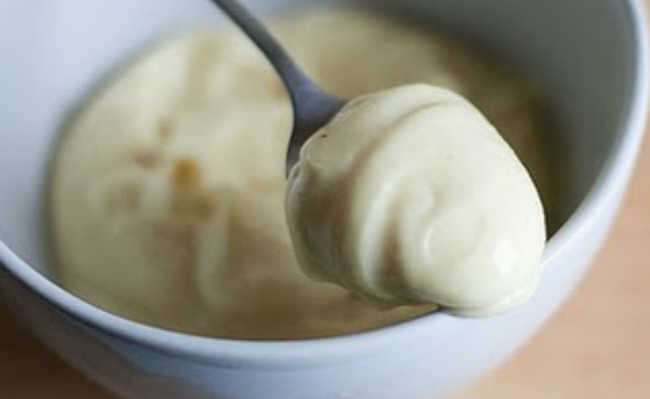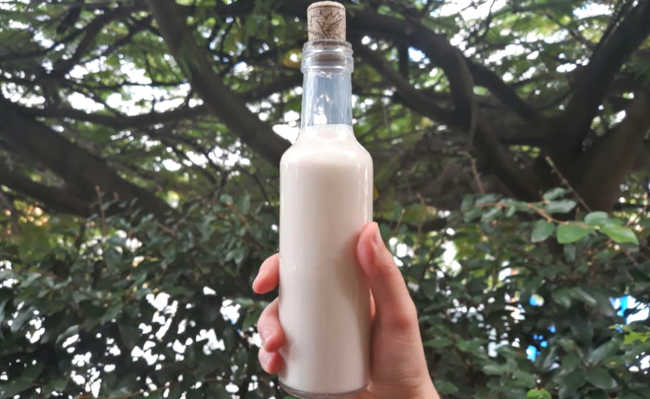Brazil nut oil is good for health and beauty
Check out the benefits of Brazil nut oil

THE Bertholletia excelsa, popularly known as Brazil nut or Brazil nut, is a large tree, native to the Amazon Forest, Brazil and Bolivia. The chestnut is the seed contained within the fruit. It is an oilseed with high energy value and has many lipids, fatty acids and antioxidant compounds (learn more in the article "What are antioxidants? See which foods are rich in these substances and understand why it is important to consume them").
Its benefits don't stop at the seed. Brazil nut oil is extracted by cold pressing of dry seeds or via solvent extraction, using ethanol or petroleum-derived compounds. The oil obtained from Brazil nuts has many components. It is very rich in fatty acids, especially linoleic acid, linolenic acid, oleic acid, palmitic acid, vitamins A and E, several minerals and trace elements, such as calcium, iron, zinc, potassium and selenium.
But do you know of the different uses of Brazil nut oil in the Brazilian market? In addition to food, it is used in the pharmaceutical and cosmetic industries, in the production of paints and varnishes, and is also being studied to be applied as a raw material for renewable fuel.
applications
The various components present in Brazil nut oil are responsible for its applications and properties. Because it guarantees many benefits, it is an oil widely used in beauty treatments and in the manufacture of cosmetics.
Fatty acids, especially linoleic (omega 6) and linolenic (omega 9), are essential in the formation of epithelial tissue and are found in Brazil nuts. They participate in the biochemical and physiological processes of skin barrier formation, acting as a lubricant on scars. The presence of minerals and trace elements is very important for tissue regeneration, especially zinc, which in addition to accelerating the healing process, removes the risk of infections.
Vitamins A and E are essential for skin protection. Vitamin E - or tocopherol - has an important antioxidant action and fights free radicals, acting to prevent skin aging, the appearance of wrinkles and flaccidity. The selenium contained in the composition of vegetable oil is also a compound that helps fight aging, enhancing this action.
Brazil nut oil is considered one of the best vegetable oils with hydrating power. It is a lubricant and emollient, which makes the skin smoother and prevents transepidermal water loss, greatly increasing the hydration of the skin and hair. In addition, the oil has important components to replenish the skin's lipid barrier, minimizing dryness and dehydration.
It can be used on the skin of the body and face as well as on the hair, providing softness, smoothness and preventing skin dryness (because it is emollient). Brazil nut oil forms a protective film on the skin, preventing water evaporation and dehydration, and can serve as an ingredient in sunscreens.
When applied to hair, the oil repairs damage and restores its natural shine. Very suitable for brittle, dry, opaque and chemically treated hair because it deeply nourishes and hydrates the strands, it is considered one of the best conditioners for dehydrated and damaged hair. In people with dark hair, Brazil nut vegetable oil can intensify the color.
Both on the skin and on the hair, the oil can be applied pure or combined with moisturizing creams or even with other vegetable oils, and its application can be made whenever necessary, without restrictions. It is also used as an ingredient in the production of handmade soaps and soaps, lubricant for watches and in the manufacture of paints for plastic artists.
Make sure the vegetable oil is pure and natural before using it, as some may contain chemicals that are harmful to your health. You can find 100% pure Brazil nut oil at eCycle store.
Brazil nut oil is not just for cosmetic care. When added to salads or hot dishes, it can bring even more benefits, as it strengthens the immune system, balances thyroid function and prevents neurodegenerative diseases. However, it is a caloric oil - it should not be consumed in excess or cooked with other foods.
discard
It is also worth mentioning that the improper disposal of oils causes serious environmental impacts, mainly water contamination. Thus, the disposal of vegetable oils in drains and sinks is inadequate, as it can cause several environmental risks, in addition to causing clogging in the pipes. Therefore, for proper disposal, place the oil residue in a plastic container and take it to a collection point so that the oil can be recycled.
Check which recycling stations are closest to you.










